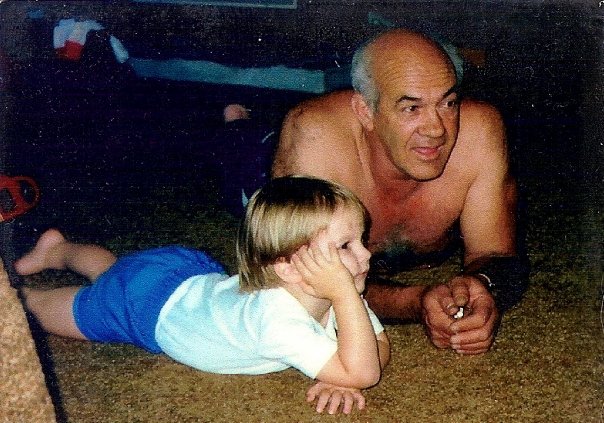Ties that could never be chosen
/Yesterday Alan Jacobs shared a thought-provoking short post on “the redefinition of all legitimate relations as contractual ones and the consequent rejection of the validity of any connections that are not explicitly chosen,” a deep cultural shift that has made all of us more autonomous and less human. Jacobs mentions family ties specifically, which we all receive rather than select, and includes the following quotation from the late Sir Roger Scruton’s final book, a study of Wagner’s Parsifal:
Liberal individualism is an attractive philosophy, and has produced beautiful and influential theories of political legitimacy, including those of Locke, Harrison, Montesquieu, Rousseau and, in our time, John Rawls. But it does not describe real human beings. What matters to us, far more than our deals and bargains, are the ties that we never contracted, that we stumbled into through passion and temptation, as well as the ties that could never be chosen, like those that bind us to our parents, our country, and our religious and cultural inheritance. These ties put us, regardless of our aims and desires, in existential predicaments that we cannot always rectify.
As it happens, I’ve just finished reading a new edition of Waltharius, an early medieval Latin epic about Walter of Aquitaine. The poem is set in the mid-fifth century world of the Franks, Burgundians, Visigoths, and Huns. The action begins in the court of Attila somewhere in central Europe. There, we meet:
Walthari, heir to a Visigothic kingdom in the west
Hildigunda, daughter of the Burgundian king
Hagano, a Frankish nobleman
All three are hostages to Attila, collateral in a peace deal between Attila and their respective kingdoms. Further, Walthari and Hildigunda have been pledged to each other in marriage since childhood, and Walthari and Hagano, through the trials of combat in the ranks of Attila’s allied fighters, have become fast friends.
But then the peace treaty between Attila and the Franks ends and Hagano flees before he can be killed, and when Attila, as a reward for Walthari’s brave and loyal service (being a medieval hostage involved a lot more collaboration with one’s host than the word suggests now, and could be quite cushy), announces his plan to marry Walthari into his family and keep him on permanently, Walthari decides to flee, too, and to take Hildigunda with him. They love each other and don’t want their childhood betrothal undone.
One might expect a frantic pursuit across Europe but Walthari and Hildigunda’s flight goes smoothly until they reach Frankish territory. There, Gundahari attempts to stop them and confiscate not only Walthari’s horse and treasure but Hildigunda herself. He calls on Hagano’s aid, but Hagano refuses to fight his old friend until ten other men—including, crucially, some of his own kinsmen—have been killed. The climactic action is akin to that six-minute brawl in the alley in They Live, a brutal knock-down drag-out that ends with renewed friendship.
Much of the tension in Waltharius therefore comes from the attempts by the characters to honor unchosen obligations. Namely:
Walthari, Hildigunda, and Hagano’s hostage relationship with Attila, which was chosen for them by their families (and is threatened by events back home and Attila himself)
Walthari and Hildigunda’s betrothal, which was chosen for them by their parents (and is threatened first by Attila and then by Gundahari)
Walthari and Hagano’s friendship, which was chosen for them, in a sense, by Attila and their families (and is threatened by Gundahari)
Hagano and Gundahari’s lord-vassal relationship, which was chosen for them by Gundahari’s succession (and is threatened by Gundahari’s presumption and Walthari’s skill with a sword)
Per Scruton, these are conflicts that cannot easily be resolved, if at all, and medieval people were acutely aware of that. The conflict of obligations is hardly unique to Waltharius. Think of the Volsungsaga, in which Signy must not under any circumstances fail to avenge her father, but can only do so by killing her husband Siggeir, whom she must not under any circumstances fail to protect. No happy ending there.
In each case above, the characters must choose which obligation is prior, and honor that. One suspects that a modern person in similar circumstances would nope out of there, as the kids say. Medieval people had a word for that.
That “we cannot always rectify” such “predicaments” does not make them absurd, however. The unchosen is prior to and deeper than any transactional alternative that the world of what Jacobs calls “metaphysical capitalism” can offer. But one wonders, given the inescapable success of the commodifying, transactional vision of the world, whether a story like Waltharius is even intelligible to modern people.
All the more reason to read, study, and share it.
Take a minute to read all of Jacobs’s post, as well as the handful of earlier posts he links to at the top. The edition of Waltharius I read is an updated version of Brian Murdoch’s translation published by Uppsala Books. It’s a delight. Check it out here or at Uppsala’s website here.









